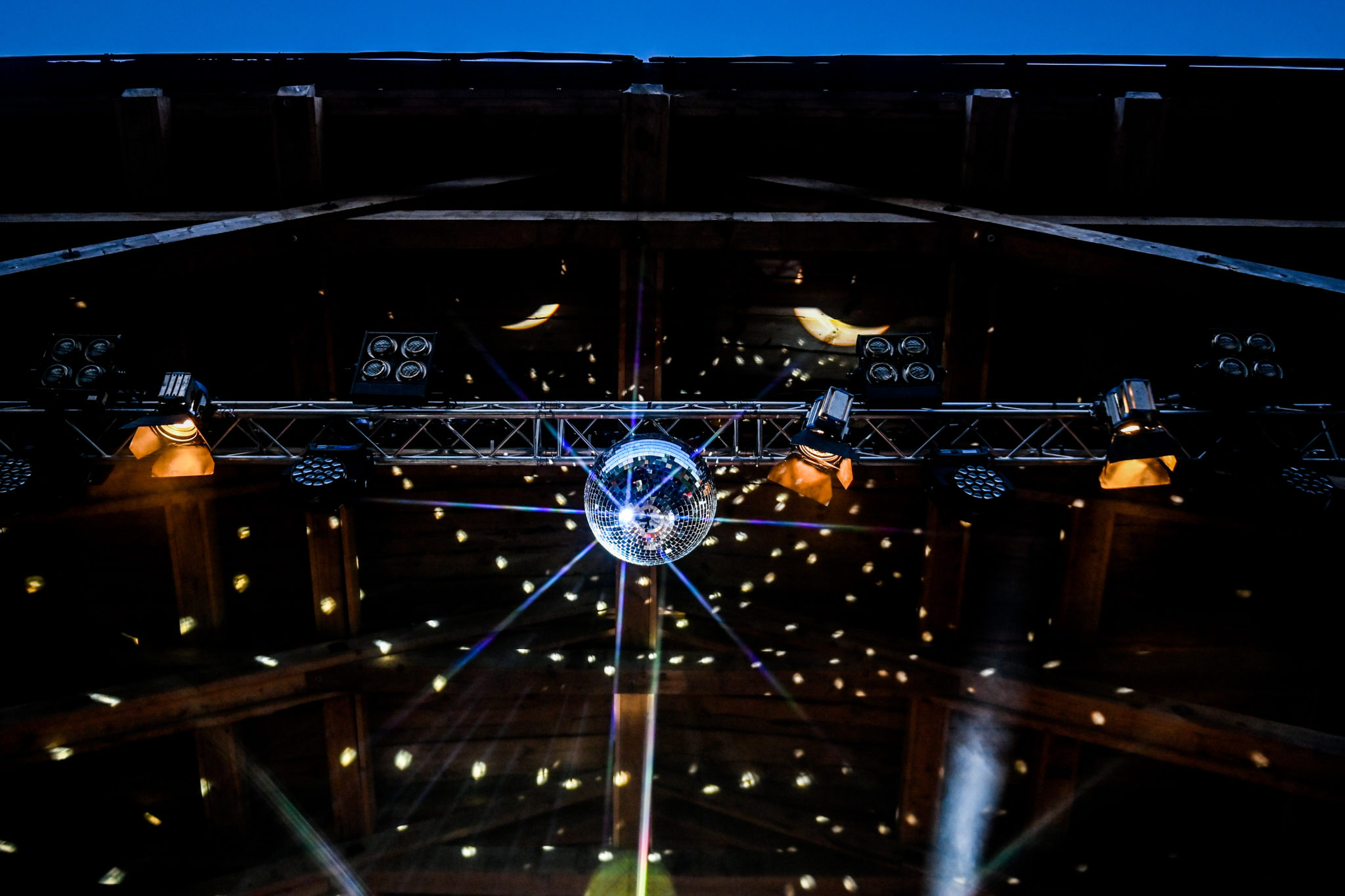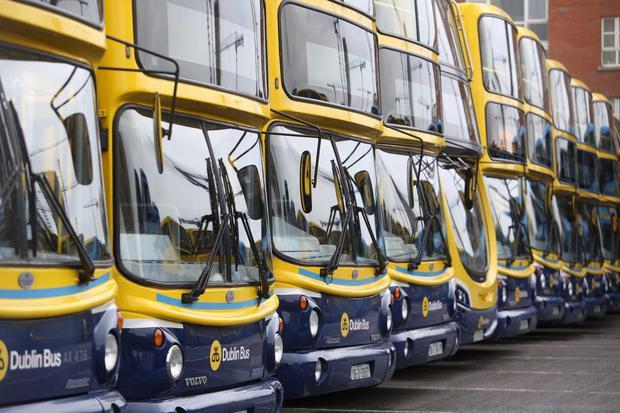- Opinion
- 13 Sep 22

Give Us The Night are a volunteer community organisation comprised of individuals whose jobs either relate to or take place within the nightlife industry.
Give Us The Night have revealed their nine-point submission to the Irish government, focusing on music venues, nightclubs, licensing laws, grants, night-time transport and more.
Budget 2023 will be announced on September 27th, with energy bills, childcare and the cost-of-living expected to be heavily addressed.
Give Us The Night address new venue infrastructure, sound-proofing, reduced VAT rate of 9% for the industry, a removal of the Special Exemption Order (SEO), 24-hour transport for safety at night and more. The group advocate for cultural infrastructure and access to spaces for artists, producers, DJs and more - which has been largely reduced as a result of the Covid-19 pandemic and consequential lockdowns.
The organisation has noted an 84 per cent decrease in nightclubs since 2000, no new build venues in well over a decade, and many Irish counties without any type of specialist night-time dance venue.
"A common theme throughout the arts is the growing lack of access to space, whether these are workspaces, rehearsal rooms or venues of various types. Access to cultural infrastructure is something that the Government needs to rethink and be ready to invest into," Give Us The Night write in their new submission.
Advertisement
"With this in mind, we have proposed some practical solutions to create new spaces and upgrade others, to fit the needs of a large range of practitioners. The current financial pressures faced by individuals within our community, from venue operators to workers, leaves the sector in a particularly precarious position, that we fear will lead to further venue closures and job losses. We hope that the Government will implement the supports proposed within this submission, and provide much-needed assistance to the sector at this critical juncture."
Read the submission's points in full below or download a PDF here.
 Mother DJs at Body & Soul Festival 2022 at Ballinlough Castle, Co. Westmeath, 17th– 19th June. Copyright Ruth Medjber.
Mother DJs at Body & Soul Festival 2022 at Ballinlough Castle, Co. Westmeath, 17th– 19th June. Copyright Ruth Medjber.1. Venue Infrastructure
Encourage arts and music organisations to create new independent venues. Build on the existing Town and Village Renewal Scheme, increasing the Building Acquisition Measure to fund 10 local authorities €400,000 each towards the purchase of vacant and derelict buildings specifically for arts/music use. Successful organisations would secure long-term leases, and/or be enabled to become shareholders in these properties.
These multi-purpose venues would be more than community hubs, they could also provide high end audio-visual opportunities for a range of organisations and events, as well as becoming valued visitor destinations.
Advertisement
2. Sound-proofing Grants
For a relatively small investment overall, noise related disputes between venues and local residents can be mostly resolved. Since 2018, the Berlin Senate Department for Economics, Energy and Enterprises has invested €1 million per year to soundproof problematic venues in the city, through its ‘Noise Protection Fund’.
This has so far helped almost 20 venues through both finished and ongoing work. We propose an initial €1.5 million nationwide fund to be administered by the Department of Tourism, Culture, Arts, Gaeltacht, Sport and Media, in liaison with local authorities and other relevant stakeholders.
3. Reduced VAT Rates
Venue operators, promoters, performers and industry professionals throughout the music and entertainment sectors are tied into a 23% VAT rate. Dance events are, for no given reason, currently excluded from the 9% VAT bracket for ticket sales of musical events. We ask that this exclusion be reversed. We also request that the rate be dropped to 9% for paid services (DJs, musicians, performers etc).
To achieve a fair balance across the sector, this 9% rate could also be applied to other services including sound and lighting hire. These changes will have a quick and effective impact on many financially vulnerable venues, promoters and sole traders operating within the sector. We also call for a further cut of VAT on energy bills, preferably to the zero rate.
4. Reduced Licensing Costs
Advertisement
It has been indicated by the Department of Justice that the Special Exemption Order (SEO) fee system will soon cease, and we ask for these late licence fees to be waived with immediate effect until the new Sale of Alcohol Bill is enacted. Late night venues have reached one of their least active periods of all-time, a big factor in this is the continued SEO penalties required to open ‘late’.
With insurance premiums at an all-time high, hitting over €150,000 per year in some cases, the ability to pay for SEOs on top of this is simply not there. This system is unhealthy, unfair and should never have been established in the first place. The costs are unsustainable and will force more venues into prolonged spells of limited activity, reduce employment and lead to further closures. We ask that these fees are waived, and that the soon to be fixed price for an annual nightclub licence is no more than €2,500 in total (based on UK equivalent).
5. Transport at Night
Budgetary considerations should be given to: 1. 24-hour transport to be standardised across the country, particularly in cities. This should include a full rollout of ‘round the clock bus services across Dublin City, an increase of services in Cork, and the piloting of services in Galway, Limerick and Waterford to commence as soon as possible. 2. Low fares be a feature for all late-night transport and for consideration be given to free travel for night-time workers.
This would incentivise more employment in the sector, help to ease the current staff shortages, and provide reliable, affordable options for all night-time workers. 3. Establishing a transport police department to oversee night-time bus, train and tram services. 4. Resourcing night-time transport hubs, which would be monitored by CCTV. To include pop-up taxi ranks and bicycle parking stations at selected central locations including multi-use car parks, office districts and other landmark destinations including venues.

6. First-time Venue Grant
Advertisement
Ireland has missed out on a generation of new venue operators and owners since licensing amendments were made in 2008. Coupled with new restrictions to closing times (through removal of theatre licence for late trading), the financial barriers to entry to the market became too great for new operators. Today set-up costs have risen further again.
To ease the excessive financial burden of opening a venue, the Government could fund the initial set-up costs for new operators through a first-time venue grant. This could cover a range of costs: purchase of relevant licences, council rates, legal fees, financial assistance to attain fire certification, contribution to insurance premium etc.
7. Container/Portable Studios
A more practical approach is needed to help reduce the severe shortage of studio spaces for artists and musicians. The Government could provide funding for collectives and individuals to buy and furnish portable studio spaces to be used as workspaces of all kinds. This could include the purchase of shipping containers, mobile vehicles and other types of portable units.
By involving stakeholders including the OPW, local authorities and other relevant public bodies, suitable locations and sustainable strategies for the placement of these studios could be mapped out. This also provides an ideal opportunity for planning authorities to identify achievable solutions for property developers, who need greater guidance in terms of their commitments to provide tangible cultural infrastructure.
8. Night-fitting Scheme
Fund all types of cultural and entertainment venues, including nightclubs, pubs, theatres, arts centres and cinemas, to upgrade their facilities for increased night-time use. e.g. Building works, retractable seating, stage/booth improvements. A second strand could fund accessibility infrastructure such as ramps, lifts, railings and designated seating areas.
Advertisement
9. Sound / Lighting Fund
Local venues, arts centres and community spaces are too often not suitably equipped to be activated in the night-time economy. Given the lack of specialist equipment within these spaces, the financial and practical barriers to putting on events are significant, with event organisers often hiring in everything themselves. By assisting these spaces and organisers to buy their own sound systems, and other relevant specialist equipment, it would help ease fixed costs for each event.
This would be a practical step towards increasing community based activity in the night-time economy across the country, the improvement of associated arts employment opportunities within these spaces (such as visual arts) and the development of a more sophisticated sound system culture amongst music collectives.










